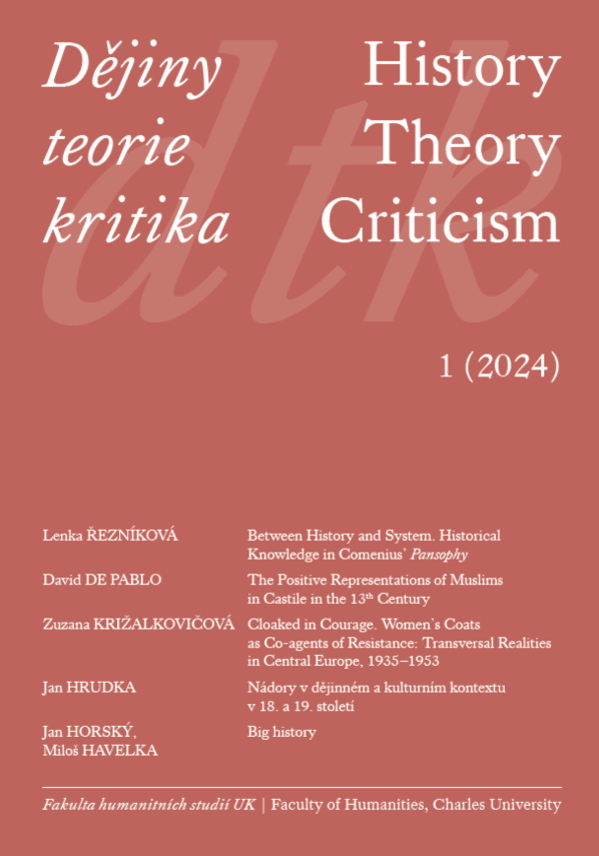The Positive Representations of Muslims in Castile in the 13th Century
DOI:
https://doi.org/10.14712/24645370.4576Keywords:
positive representations, Muslims, otherness, Castile, 13th centuryAbstract
The representations of Muslims in medieval Castile have generally been interpreted under a pejorative connotation, in which Christians identified the other as inferior or as negative (bad, sinful, etc.). However, in this particular case, the 13th-century sources show that, although less frequent, there were also positive representations of the Muslims who inhabited the Iberian Peninsula. This article delves into the creation, purpose, and temporal aspects of representations. It explores the positive applications of these representations and, most importantly, examines how they are articulated within the broader representational framework of the "other." This analysis contributes to theoretical discussions on otherness, specifically addressing whether the manifestation of the other to the self leads to a potential loss of their alterity.


